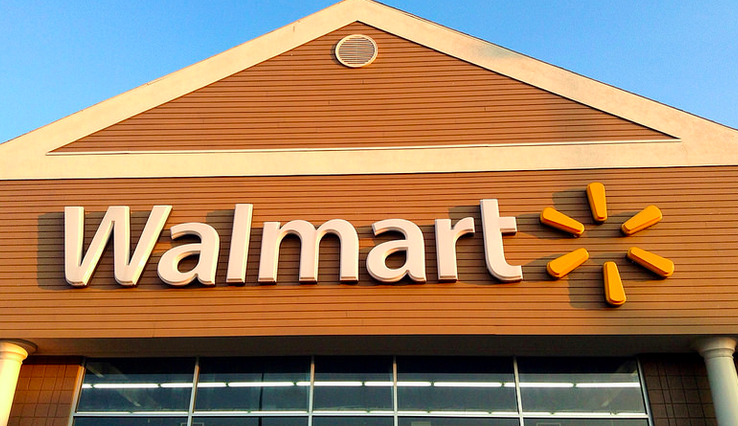Walmart Sues Texas Over Law Banning Publicly Traded Companies From Selling Liquor
Depending on the state you live in, buying booze and beer can be a bit tricky. South Carolina and Kentucky previously outlawed the sale of alcohol on Election Day, while last year, the state of Michigan pondered a law that would classify a “pint” of beer as 16-ounces or less. But it’s a long-running law in Texas banning the sale of liquor (but not beer or wine) at publicly traded companies that raised the ire of Walmart. Now the nation’s largest retailer is suing the state to gain the ability to sell the spirits.
The Dallas Morning News reports that Walmart, along with its subsidiaries including Sam’s Club, filed a lawsuit against the Texas Alcoholic Beverage Commission claiming the current state law unfairly discriminates against corporations that aim to provide choice to consumers when it comes to liquor sales.
The lawsuit [PDF], filed Thursday in U.S. District Court for the Western District of Texas, challenges the constitutionality of the Texas statutes.
Walmart, which is the largest beer and wine retailer in the state with more than 500 stores, claims that the Texas law is unconstitutional under the Equal Protection Clause, Commerce Clause and Comity Clause of the U.S. constitution.
Walmart takes issue with the Texas state law that prohibits publicly traded companies – with the exception of hotels – from owning or obtaining the necessary permit that allows the sale of liquor.
“WalMart would like to also sell distilled spirits at its Walmart and Sam’s Club locations in Texas for off-premises consumption,” the lawsuit states. “However, it is forbidden from doing so because Texas law irrationally forbids any publicly traded corporation from owning or holding the permit needed to do that, i.e., a ‘package store permit.'”
Walmart claims the law creates arbitrary distinctions to separate classes of retailers with no rational difference or purpose.
“One class of retailers—public corporations—are denied an opportunity to compete in the distilled spirits market, while another class of retailers—private corporations and publicly traded hotel corporations—are allowed to compete without similar restriction,” the lawsuit states. “No other state in the nation allows private corporations to engage in the retail sale of spirits but prohibits some but not all publicly traded companies from doing so.”
In addition to being “irrationally” banned from obtaining the required permits for liquor sales, Walmart’s lawsuit takes issue with a statute limiting the number of stores that can sell liquor once permits are obtained.
Currently, the law prohibits retailers from holding more than five package store permits; meaning that if a retailer has several locations throughout the state only five can sell the spirits.
The company says in the lawsuit that the Texas ABC unfairly lets small family owned companies to take advantage of a loophole that allows close family members to “pool their package store permits into a single entity and collectively obtain an unlimited number of package store permits.”
Additionally, the company says that even if it were allowed to obtain store package permits to sell liquor, to do so under current law would mean the company must abandon its 543 beer and wine permits.
Walmart claims the real victims of the state’s ban is consumers.
“The ban against public corporations negatively impacts Texas consumers, who are forced to pay non-competitive prices because fair competition is prevented,” the lawsuit states.
A spokesperson for Walmart tells the Dallas Morning News that Texas customers want added convenience when shopping for adult beverages.
“This is counter to Texas’ belief in free enterprise and fair competition, limits our customer’s choice and keeps the price of spirits artificially high, all of which harm Texas consumers,” the spokesperson said. “Walmart believes the law needs to be changed to provide a fair and level playing field so we can offer our customers a full assortment of adult beverages.”
Wal-Mart sues the state of Texas over its liquor sale law [The Dallas Morning News]
Want more consumer news? Visit our parent organization, Consumer Reports, for the latest on scams, recalls, and other consumer issues.


